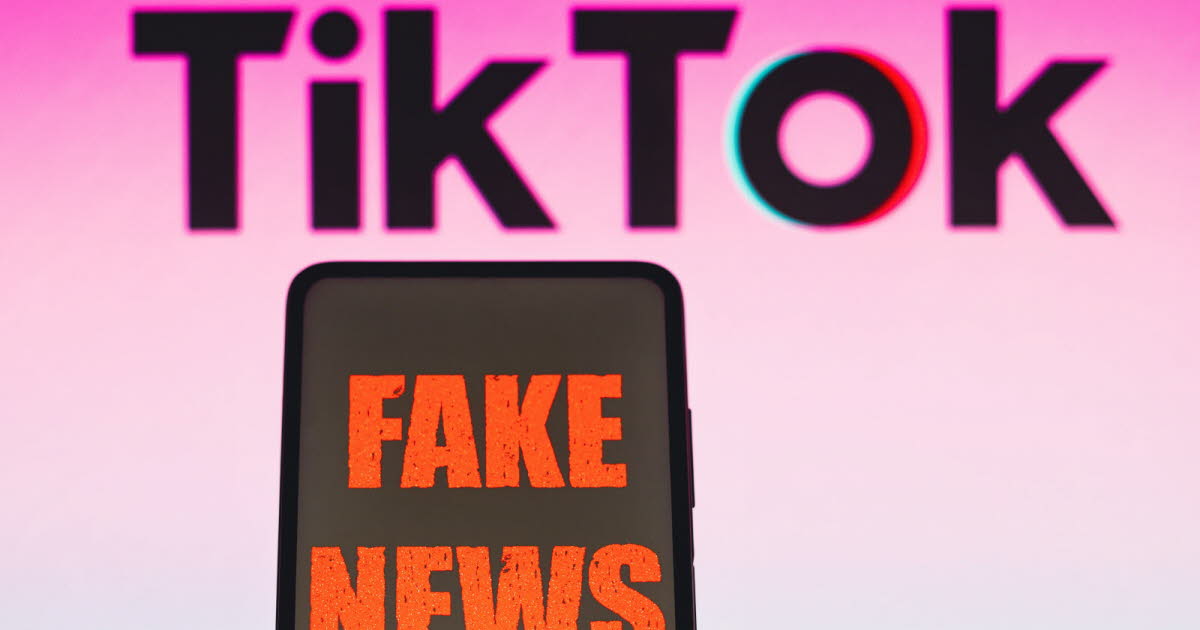The Earth is flat, the Americans have never been to the Moon, the pyramids were built by aliens, the assault on the Capitol was staged… An Ifop poll for the Jean-Jaurès Foundation published this Thursday warn of the fact that conspiratorial theses, and more generally irrational beliefs, are on the rise among young people aged 18 to 24.
While 55% of 18-24 year olds believed in 1972 that science brought more good than harm, only 33% of young people think so today. “It is clear that the beneficial effects of scientific research on society are less and less well perceived, especially by those who may see science as a threat to their profession (for example 29% of workers) or to their dogmas religious (27% of Muslims, 24% of Protestants and Evangelicals)”, points out the Jean-Jaurès Foundation.
Untruths that have the wind in their sails
Young people are thus more and more permeable to “alternative truths”, such as conspiracy theories, climato-skepticism, vaccine-skepticism.
27% of 18-24 year olds think that human beings are not the result of a long evolution but were created by a spiritual force, 20% think that Americans have never been to the Moon, 16% that he is possible that the Earth is flat and not round and 19% that the pyramids were built by aliens. “Very logically, creationism finds itself supported en masse by those polled who call themselves religious,” points out the Foundation.
On the health side, the picture is no more encouraging in a context where the health crisis has favored the rise of conspiracy theories. Thus, 32% of young people believe that mRNA vaccines against COVID-19 generate toxic proteins and 25% that it is safe to abort with herbal products.
Politics is also affected by these untruths: 31% of young people think that the result of the 2020 American presidential election was distorted at the expense of Donald Trump. As for the war in Ukraine, 26% of young people believe that the massacre of civilians in Boutcha was staged by the Ukrainian authorities.
The environment is not immune to scientific misinformation among young people. They are 30% to think that eating organic is useless and 29% to believe that global warming is above all a natural phenomenon against which nothing can be done. These two untruths are the only ones that hold more support from seniors than from young people. All the others are massively rejected by the oldest.
Moreover, 69%, or more than two thirds of young people aged 18 to 24, believe at least one of the untruths stated above.
More and more young people see astrology as a science
The proportion of young people believing that astrology is a science has increased significantly: 49% of young people think so, ie 5 points more than in 1999. Young people are also significantly more likely than seniors to believe in the predictions of clairvoyants, numerology, the lines of the hand or cartomancy.
Superstitions of an occult nature (spirits, the evil eye, reincarnation, ghosts, etc.) are also much more present among 18-24 year olds than among their ancestors.
Social networks, breeding grounds for untruths
Conspiratorial theses and alternative truths mainly find followers among intensive users of social networks, particularly micro-blooging networks (Instagram, TikTok, etc.). For example, 53% of users of social networks on which photos and videos are shared believe that astrology is a science, compared to 46% of those who never go there. “The record with regard to occult superstitions is even exacerbated: 67% of multiple daily users adhere to at least one superstition, compared to 42% of those who do not use it”, notes the Jean-Jaurès Foundation.
The proportion of young people adhering to at least one of the above untruths is also very high among TikTok users (74%), compared to 67% among those who never go to this network.
Finally, the Jean-Jaurès Foundation notes that people claiming to be believers and religious are “significantly more numerous (85%) to believe in at least one of these untruths than people claiming to be atheists (62%)”. The poorest, workers, young people without a higher education diploma and supporters of the National Rally are among the categories where the proportion of young people believing in at least one scientific untruth is the highest.
(1) The survey was conducted with a sample of 2003 people, representative of the population aged 11 to 24 living in metropolitan France. The interviews were carried out by self-administered questionnaire online from October 28 to November 7, 2022.has representativeness of the sample has summer assured through the method of the quota to glance of criteria demographic (sex, age), social–cultural (status of schooling, level of diploma), professionals (situation in matter employment, category socio-professional of the no one questioned) and geographical (region, category agglomeration).
We wish to give thanks to the author of this post for this incredible content
Company. Platism, astrology, creationism… Young people increasingly suspicious of science
Explore our social media accounts and also other related pageshttps://nimblespirit.com/related-pages/

